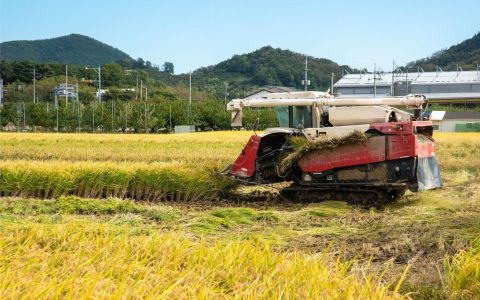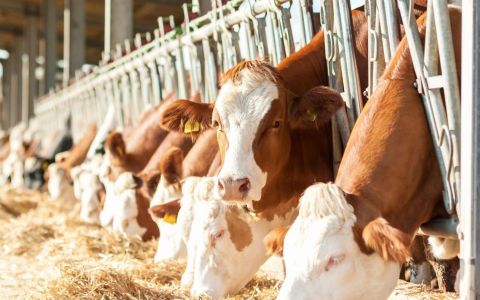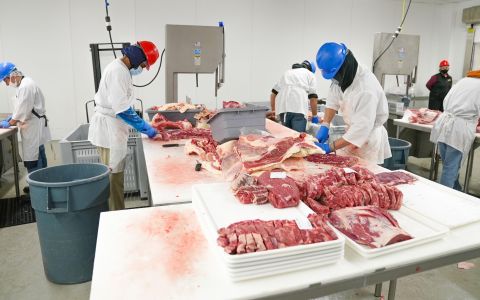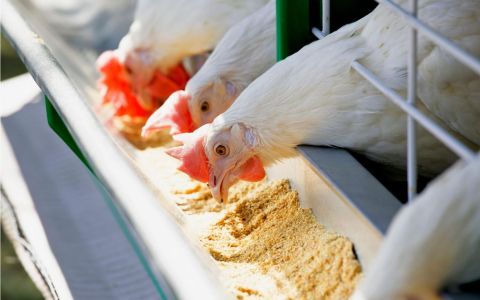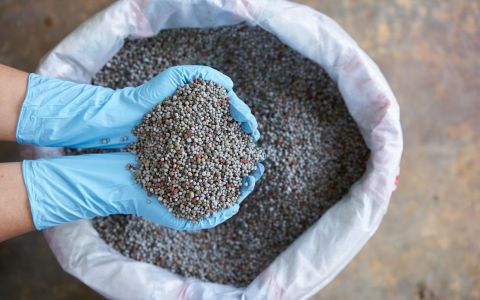Argicultural Product Testing : The Safeguard of Transportation, Health, and Environment
After Taiwan's joined the WTO, agricultural products faced strong competition in both domestic and international sales. For international trade, many countries have strict inspection standards for pesticide residues in imported products. Only qualified products that have been ensured of their quality and safety can be distributed to the international market. On the other hand in the domestic market, with the improvement of people’s living standards and higher requirements for food safety, the demand for various inspections has greatly increased. Therefore, pesticide residue testing has been implemented to monitor the use of pesticides, thereby improving their efficiency and reducing their impact on the environment. Furthermore, the inspection of agricultural products plays the role of guardian in the transportation and marketing of agricultural products, health, and environmental protection.
The invention of Pesticides Rapid Screening and Testing – Phansco Co. Ltd
Phansco Co. Ltd. worked together with Taiwan Agricultural Chemical and Toxic Substance Research Institute to develop a rapid screening technology called; “Raman Spectroscopic Pesticide Residue Detection System”, which introduced a nano-opto-electro-me mechanical system that builds a database consists of more than 230 pesticide residue profiles, to reduce human error, has won many invention patents in Taiwan and mainland China. This system utilizes a plant's fingerprint identification before harvesting vegetables and fruits, allowing for real-time detection, analysis, and in report production the field. Unqualified products can be intercepted before being sold to the market, adding a strict security mechanism for inspection.
Previously, using biochemical testing methods can take up to 5-7 days, which cost time and budget. Using the newly introduced system saves time with results detected in 10-15 minutes, and detecting new types of toxins that couldn’t be identified in the past. The higher the toxic percentage detected, the tougher it is for farmers to sell their products to the market, however safer for the consumers. This system effectively reduces the inspection threshold and a fast inspection time which allows producers and purchasers to have the willingness to conduct independent inspections. At the same time, it also increases the frequency of government monitoring of high-risk agricultural products and strengthens the supply mode of source safety management of agricultural products.
Spectral Detection of Phalaenopsis Pests and White Rice Quality - Isuzu Optics
Taiwan also known as the “Kingdom of Phalaenopsis”, with a rich variety and abundant quantity of moth orchids, is deeply loved both by flower lovers domestically and internationally. Beforehand, quality control on these types of flowers mostly relied on manual sampling and testing. The inspection process was not only complex but also unable to obtain real-time test results, as the method caused damage to the sample leading it to be unmarketable.
Isuzu Optics corporate with National Chung Hsin University's "Agricultural Product Quality Spectral Detection Technology", to work on the combination of hyperspectral analysis techniques and algorithms, which can detect a fungal infection that causes yellowing leaves without causing damage to Phalaenopsis.
This technology can also be applied to the screening of rice quality. Nowadays, most white rice screening and grading use automated machine identification systems, high-precision cameras, and image identification technology to observe the size, shape, color, texture, and other appearance characteristics of the grain. This technology uses a high light spectrometer to conduct spectral measurements of different types of rice, and obtain spectral data of various wavelengths, which can improve the accuracy of data, and quickly detect the quality of rice.
Other News
Nocera, Inc., a fully integrated sustainable aquaculture company focused on the manufacturing and operation of land-based Recirculating Aquaculture Systems (RASs), is pleased to announce its commencement of preliminary discussions with Chang Tai Group to explore the feasibility of a strategic collaboration.
Pesticide drops carried out by drone 4 times more efficient than by manual labor
Taiwan has witnessed rapid growth in its renewable energy sector. To bolster the adoption of clean energy, the government is actively promoting a free-market framework for green energy trading
A majority of Taiwan's long-distance saury fishing vessels have switched to using light emitting diodes (LEDs) to conduct saury fishery in the Pacific for environmental reasons.
As a result, the shift of land-based aquaculture to offshore cage net farming, creating "ocean ranching," has become a trend. This allows for the consumption of saltwater fish without the need for ocean fishing, while land can be repurposed for other uses. It saves freshwater resources, reduces carbon footprints and damage caused by disasters, and promotes a friendly farming environment that minimizes the impact of aquaculture on the environment, ultimately achieving sustainable operation.
Traditional agricultural machinery, mostly powered by diesel, is one of the primary sources of carbon emissions in agriculture. To respond to the call for net-zero emissions, countries are encouraging farmers to use electric agricultural machinery that reduces carbon emissions. Electric agricultural machinery also offers advantages such as low noise, low vibration, low waste heat, and easy startup. If they can be charged with renewable energy sources like solar power or wind power, it further enhances energy savings and carbon reduction efforts.
Animals raised without antibiotics rely on alternative health supplements like herbal medicines, probiotics, enzymes, or plant-based additives for robust health. This approach promotes a healthy digestive system, resulting in fewer cases of diarrhea, reduced fecal and urine odor, and less environmental pollution. By avoiding antibiotic use, the development of antimicrobial resistance in microorganisms is prevented, preserving the effectiveness of antibiotics. It also ensures food safety by eliminating the risk of drug residues.
Automated cutting equipment is common in modern meat processing plants for meat portioning, but detailed cutting still relies on manual hand-cutting. Knives play a crucial role in this process, significantly impacting efficiency and quality. Choosing the right knives reduces manual cutting time and effort, minimizes hand injuries, improves work efficiency, and ensures the preservation of high-quality meat with its market value intact.
Raising healthy animals for delicious meals is a challenging task that requires careful attention. In traditional animal farming, it becomes necessary to supplement animal feed with nutrients to bolster their immune systems, minimize the risk of illnesses and mortality, and enhance productivity and growth rates. This, in turn, increases overall production efficiency. In the event of animals falling ill, timely administration of medication can aid in their recovery. Alternatively, the utilization of natural herbal remedies can eliminate the residues associated with conventional chemical drugs, thereby safeguarding human food safety.
Taiwan's high temperature and rainfall lead to rapid decomposition of organic matter, resulting in insufficient organic content in farmland soil. This, in turn, causes soil acidification and heavy metal accumulation, resulting in irreversible damage. Organic fertilizers have a slow but long-lasting effect. They promote the growth of beneficial microorganisms in the soil, improve soil aeration, water retention, and fertility. They also enhance the soil's ability to buffer against environmental changes, preventing drastic fluctuations in pH and EC values.















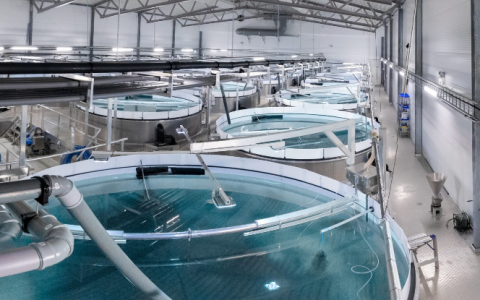
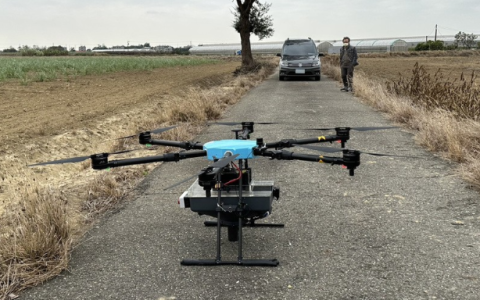

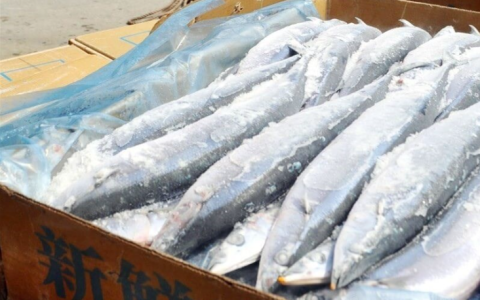
__23G27ZHEBA.jpg)
